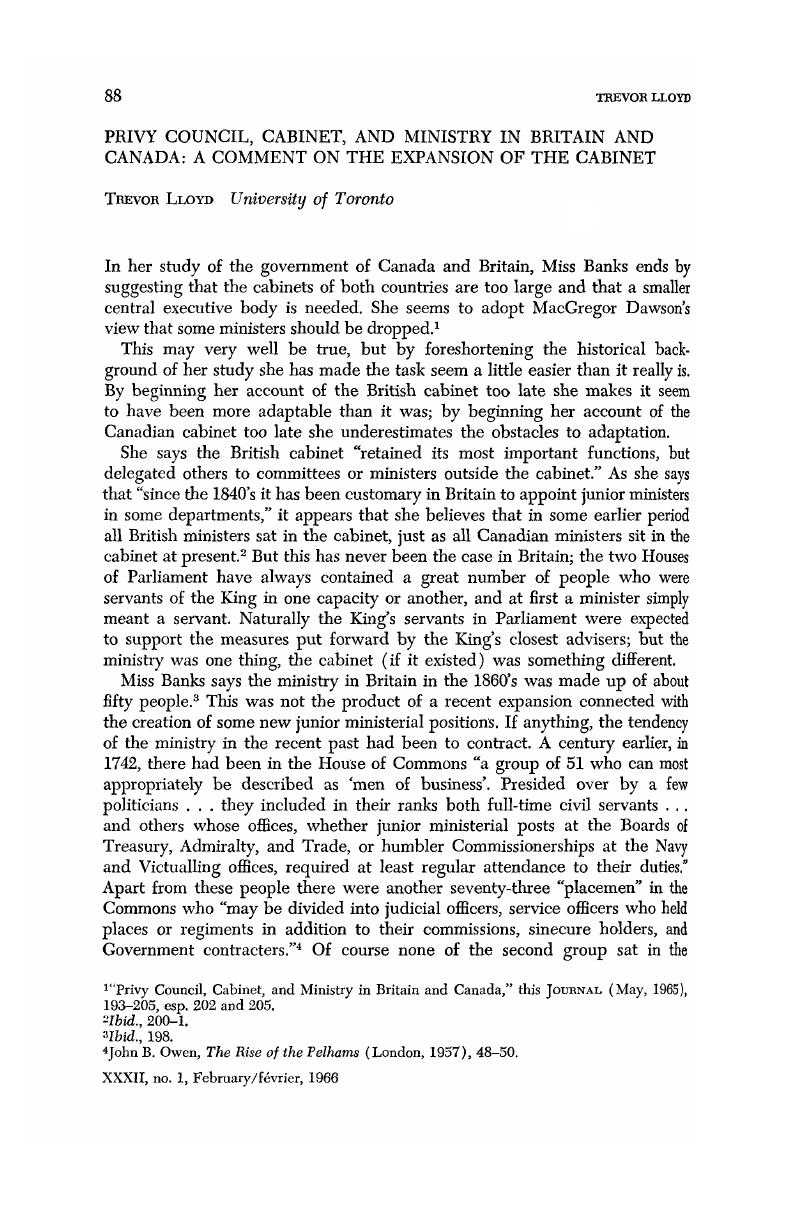No CrossRef data available.
Article contents
Privy Council, Cabinet, and Ministry in Britain and Canada: A Comment on the Expansion of the Cabinet
Published online by Cambridge University Press: 07 November 2014
Abstract

- Type
- Notes
- Information
- Canadian Journal of Economics and Political Science/Revue canadienne de economiques et science politique , Volume 32 , Issue 1 , February 1966 , pp. 88 - 90
- Copyright
- Copyright © Canadian Political Science Association 1966
References
1 “Privy Council, Cabinet, and Ministry in Britain and Canada,” this Journal (05, 1965), 193–205, esp. 202 and 205.Google Scholar
2 Ibid., 200–1.
3 Ibid., 198.
4 Owen, John B., The Rise of the Pelhams (London, 1957), 48–50.Google Scholar
5 Costin, W. C. and Watson, J. S., The Law and Working of the Constitution (London, 1952), vol. II, 374 and 383.Google Scholar
6 Kitson Clark, G., “Statesmen in Disguise,” Historical Journal, II, no. 1, esp. 27–8 and 34.Google Scholar
7 Mill, J. S., Considerations on Representative Government, ed. McCallum, R. B. (Oxford, 1947), 264.Google Scholar “To maintain responsibility at its highest there must be one person who receives the whole praise of what is well done, the whole blame of what is ill.”
8 Foord, Archibald S., His Majesty's Opposition (Oxford, 1964), 40.Google Scholar
9 Aspinall, A., “The Cabinet Council, 1783–1835,” Proceedings of the British Academy, XXXVIII, 145-6.Google Scholar
10 By now, a Canadian historian may also decline to see any difference. In a single paragraph “government,” “administration,” “Cabinet,” and “ministry” are used as synonyms for the Council. Creighton, Donald, John A. Macdonald: The Young Politician (Toronto, 1952), 121.Google Scholar
11 Muir, Ramsay, How Britain is Governed (Boston and New York, 1935), 81.Google Scholar
12 Financing Higher Education in Canada (Toronto and Quebec, 1965), 67.Google Scholar
13 Globe and Mail, Oct. 7, 1965. In “Highlights” the newspaper refers to the “appointment of federal minister of higher education”, and in “A University Prospectus” it says the Report “recommended that the federal Government create a Ministry of Education.”


